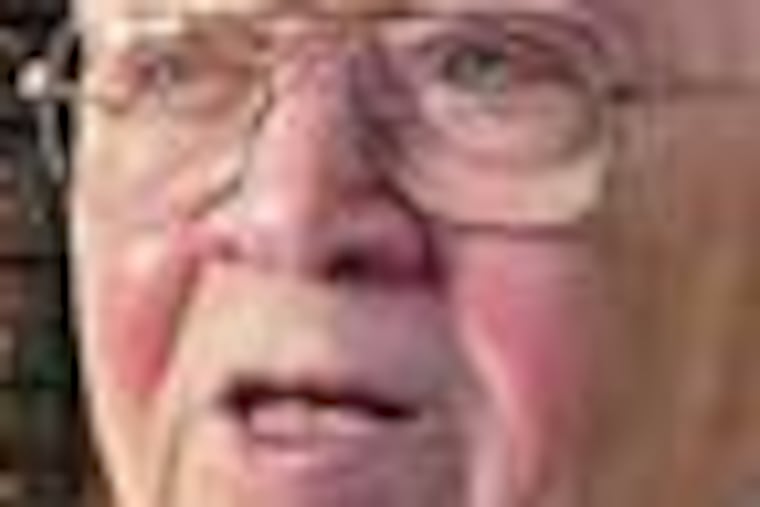Whitfield J. Bell Jr., expert on Ben Franklin, author
Whitfield J. Bell Jr. was such an authority on Benjamin Franklin that Franklin seemed to affect his life. His niece, Susan Bell Smith, said her uncle's spiritual beliefs "were pretty consistent with Benjamin Franklin, who really felt that the most acceptable service to God was doing service to man."

Whitfield J. Bell Jr. was such an authority on Benjamin Franklin that Franklin seemed to affect his life.
His niece, Susan Bell Smith, said her uncle's spiritual beliefs "were pretty consistent with Benjamin Franklin, who really felt that the most acceptable service to God was doing service to man."
But Franklin was part of a larger scholarly influence.
"Whit once said that when he went to graduate school," she said, "he discovered the 18th century and never left."
On Jan. 2, Mr. Bell, 94, former executive officer and librarian of the American Philosophical Society in Philadelphia, died of renal failure in the medical center of the Sarah A. Todd Memorial Home in Carlisle, Pa.
He had lived at the retirement home for four years.
"He was clearly the foremost authority on Benjamin Franklin" in his day, Carl Miller, APS administrative officer, said last week.
Mr. Bell's service to others might have been most apparent when he worked as a volunteer for the American Field Service during World War II.
He was not a conscientious objector like many who served with that Quaker organization.
"His eyesight kept him out of the U.S. military," Smith said, "but he still volunteered."
And as an ambulance driver for the British troops who liberated the concentration camp at Bergen-Belsen, she said, "he was profoundly affected by what he saw."
Born in Newburgh, N.Y., Mr. Bell graduated from Lower Merion High School in 1931. He earned a bachelor's degree at Dickinson College in Carlisle in 1935 and his doctorate in history at the University of Pennsylvania in 1947.
On its Web site, the APS defines itself as "the country's first learned society," founded in 1743, and its library as "a major national center for research in the history of science and technology, as well as general U.S. history to 1840."
The oldest of its three buildings, next to Independence Hall, dates to 1789. Its annual $1 million in grants and fellowships have supported research such as Antarctic expeditions.
But it may be better known for its historic documents, such as the journals from the Lewis and Clark explorations of the West in the early 1800s, which President Thomas Jefferson gave to the APS in his role as its chief officer.
Besides his Franklin expertise, Mr. Bell was an authority on such holdings, Miller at APS said.
From 1945 to 1954, Mr. Bell taught history at Dickinson and in 1950 was appointed to the Boyd Lee Spahr Chair of American History there, the youngest ever named to an endowed chair at the college.
For a year he was editor of the quarterly publication at William and Mary College.
But in 1955, Mr. Bell began his work with the Philosophical Society when it purchased a major addition to its collection of the letters of Franklin and, with Yale University, began a project to arrange and publish Franklin's writings.
Mr. Bell was associate editor on the project, headed by a Yale scholar.
In 1960, Mr. Bell left his Franklin work to become associate librarian at APS.
He was elected a member of the society in 1964, was appointed librarian in 1966, and in 1977 was named executive officer. He withdrew as librarian in 1980 and retired as executive officer in 1983.
Mr. Bell wrote a biography of 18th-century Philadelphia physician John Morgan and a history of the College of Physicians in Philadelphia.
In 1996, the American Association for the History of Medicine honored him with its lifetime achievement award.
And at times, he was a visiting professor at Penn and Bryn Mawr College.
Besides his niece, Mr. Bell is survived by a nephew, D. Michael Bell; a great-nephew; and a great-niece.
Memorial services are planned for 2 p.m. Sunday at the Stern Center of Dickinson College and 5 p.m. April 23 at Franklin Hall of the Philosophical Society, 427 Chestnut St.